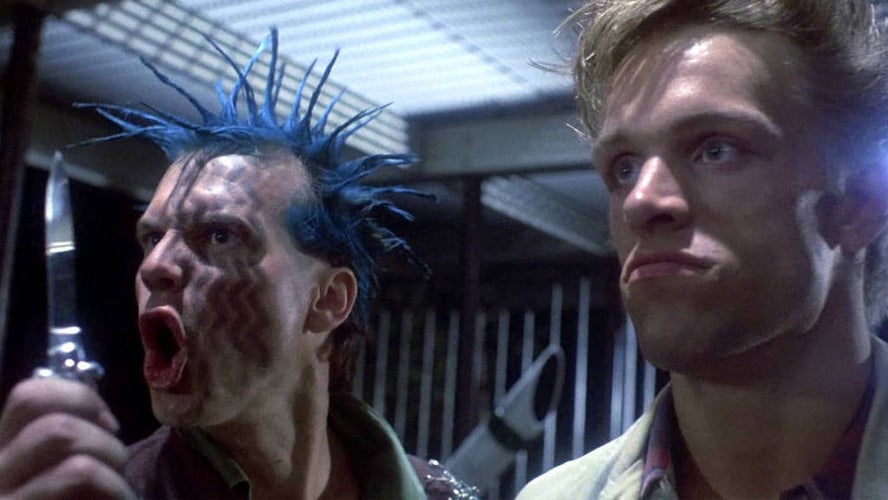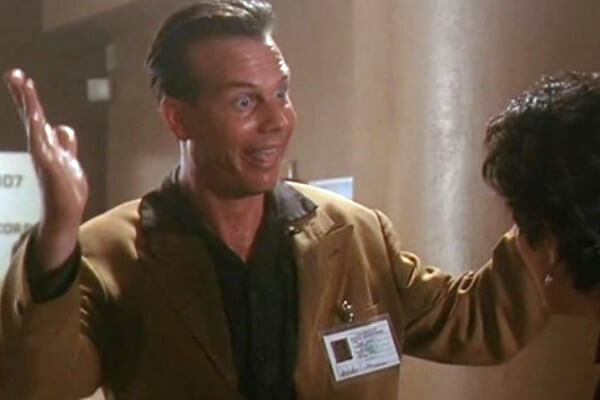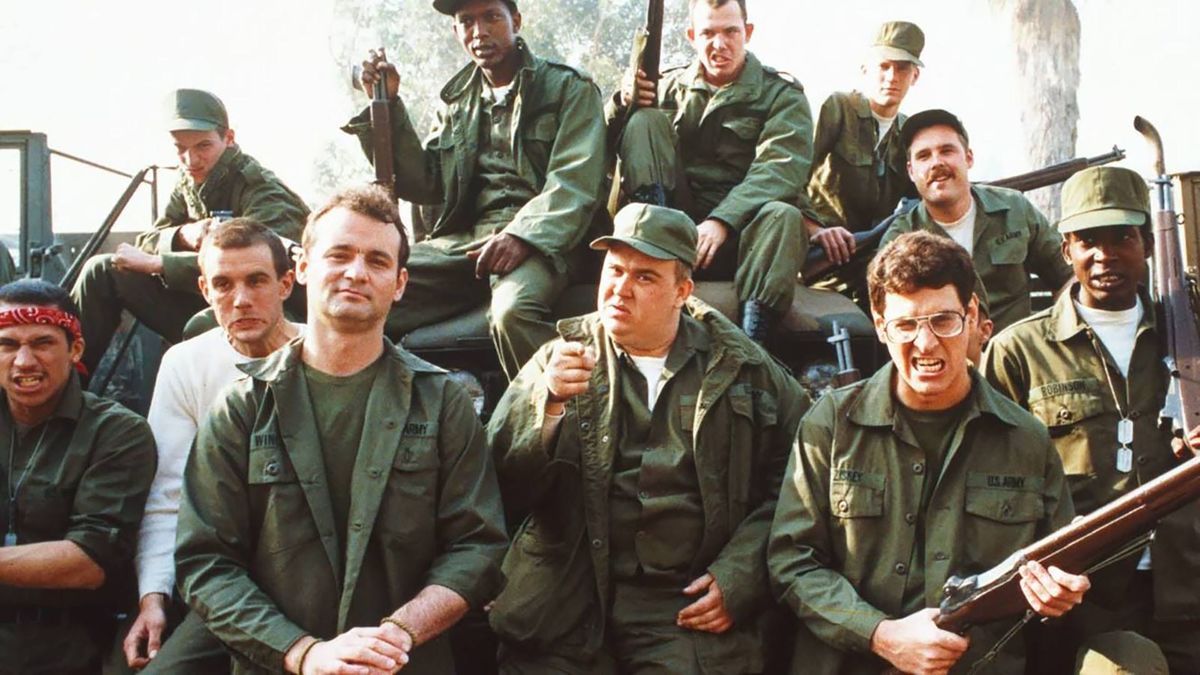This review is a part of my Bill Paxton Project, an attempt to watch and review every piece of film the man did during his lifetime.
The Circle is a 2017 techno-thriller (that’s the official category description for it, anyway) directed by James Ponsoldt. It’s about a social media company that wants to rule the world. Wait, don’t they all?
The Circle (in the movie) is a social media tech company run by Tom Hanks (who also appeared with Paxton in Apollo 13) and Patton Oswalt (who appeared with Paxton in Agents of Shield), both of whom are outwardly grandfatherly but suggestively evil right from the beginning. Emma Watson (of Harry Potter fame) plays Mae Holland, a young, private girl who gets hired to work customer service at The Circle. Vouching for her is her nutty Scottish bestie, played by Karen Gillan (Doctor Who, Guardians of the Galaxy), who works higher up in the company.
In minor roles, we have Bill Paxton and Glenne Headly (Dirty Rotten Scoundrels) playing Mae’s parents. This was the final film appearance of Bill Paxton, who died in February, 2016. Headly died in June 2017, just two months after this film was released. Paxton’s character, Vinnie, suffers from advanced Multiple Sclerosis, and Paxton barely leaves a seated position, looking ragged and weak, unshaven and shaky. It’s hard to watch him look like this, looking so frail and old, knowing he was in full, vigorous health when he shot these scenes, but also that he died just weeks later because of a doctor’s mistake.
Okay, basic plot: Mae sort of volunteers to become “transparent” – to spend every waking moment broadcasting her life to the world. While she’s doing this, the company gears up to attempt to make participation in their social media app “TrueYou” mandatory for the entire human race by making it a requirement of citizenship.
So, okay, you’re probably getting all the same “1984” vibes I was, right? I mean, Tom Hanks is Big Brother, TrueYou is the perfect cult of personality for the Thought Police. That makes Mae “Winston Smith”, right?
Right. Sort of.
Both Mae Holland and Winston Smith are low-level staffers who attempt to rebel against their own “Big Brother”, and both end up loving “Big Brother” in the end. That’s kind of it for the similarities. Winston Smith is captured and brainwashed into loving Big Brother at the end. Mae just fucks over her bosses and basically becomes Big Brother, saying that privacy has no place in the universe anymore. Sorry, what?
I happen to love my privacy. Privacy is where I pick boogers, shit, fart and masturbate. Why the fuck would I ever want to broadcast that? And who the hell would want to watch it? Hanks and Oswalt’s characters are suggested to be evil, so Mae takes away all of their privacy – all of it. We’re not shown what the world sees, so we the audience never get any validation for this malfeasance. But Mae is the hero for forcibly removing their privacy, and suggesting no one else should ever have privacy again. All this because her friend Mercer wanted privacy, and she sent her lunatic follower out to chase him to his death. Privacy is something that should be outlawed, according to the whiny, ill-formed Gen Z brain of Mae Holland, and no one gets a choice when Mae Holland decides what is right.
In the final scenes, I was reminded of the 1990 film Pump Up The Volume, starring Christian Slater. In this film, a Gen X teen takes on corporate and adult censorship by trying to make the airwaves free for everyone with his pirate radio station. Through Gen X eyes, everyone should have the freedom to speak their minds. Through Gen Z eyes, no one should ever have the freedom not to. Now I’m thinking of Village of the Damned. Do you see the difference between the liberation of Pump Up The Volume and the toxic oppression of The Circle? I’ve not read the book on which this film is based, so I can only judge it by director Ponsoldt’s interpretation, but that leaves me deeply disturbed. George Orwell’s 1984 was obviously a warning, but the ending of The Circle is much more opaque, almost seeming to suggest that the Gen Z desire to have every single voice calling out everywhere all at once is not only a good way to go, it’s the only way to go.



